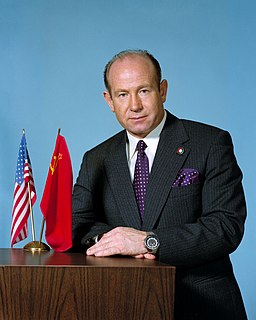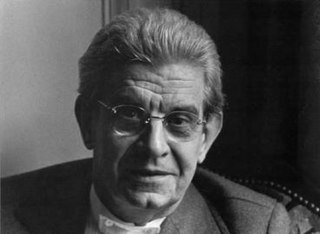A Quote by Kerry James Marshall
In [Ralph] Ellison's case, it's more psychological than it is phenomenal, and it's conditioned by anger, animosity, and lack of desire to engage with the black body. There was always simultaneity that had nothing to do with visuality. You can be there and not be there at the same time and be fully visible all the time. That's what really struck me about Ellison .
Related Quotes
Like Richard Ellmann on James Joyce, Arnold Rampersad on Ralph Ellison is in a class of its own. His masterful and magisterial book is the most powerful and profound treatment of Ellison's undeniable artistic genius, deep personal flaws, and controversial political evolution. And he reveals an Ellison unbeknownst to all of us. From now on, all serious scholarship on Ellison must begin with Rampersad's instant and inimitable classic in literary biography.
Arnold Rampersad's stunningly revealing biography has, at long last, unveiled-in magisterial prose-the very complex and vulnerable man behind Ralph Ellison's own masks and myths. One of the nation's most brilliant writers emerges as all the more fascinating precisely because he was so very human. Painstakingly researched and compellingly written, Ralph Ellison is a masterwork of the genre of literary biography.
The condition of visibility as it relates to black people was crucial. Connected to that, I've always been interested in science fiction and horror films and was acutely aware of the political and social implications of Ralph Ellison's description of invisibility as it relates to black people, as opposed to the kind of retinal invisibility that H.G. Wells described in his novel Invisible Man.
What struck me most was the silence. It was a great silence, unlike any I have encountered on Earth, so vast and deep that I began to hear my own body: my heart beating, my blood vessels pulsing, even the rustle of my muscles moving over each other seemed audible. There were more stars in the sky than I had expected. The sky was deep black, yet at the same time bright with sunlight.
I was allowed to write about race using an elevator metaphor because of Toni Morrison and David Bradley and Ralph Ellison. Hopefully, me being weird allows someone who's 16 and wanting to write inspires them to have their own weird take on the world, and they can see the different kinds of African American voices being published.
...Desire, a function central to all human experience, is the desire for nothing nameable. And at the same time this desire lies at the origin of every variety of animation. If being were only what it is, there wouldn’t even be room to talk about it. Being comes into existence as an exact function of this lack.
Different influences at different times in my career, and some have stayed with me more, some less. Chester Himes. Ralph Dennis, who wrote a series called Hardman which is a big influence on the Hap and Leonard novels. Harlan Ellison, Philip Jose Farmer, Gerald Kersh, Fredrick Brown, Robert Bloch, and I'm just getting started. I read constantly. As for the epic Western, that's Paradise Sky.





































